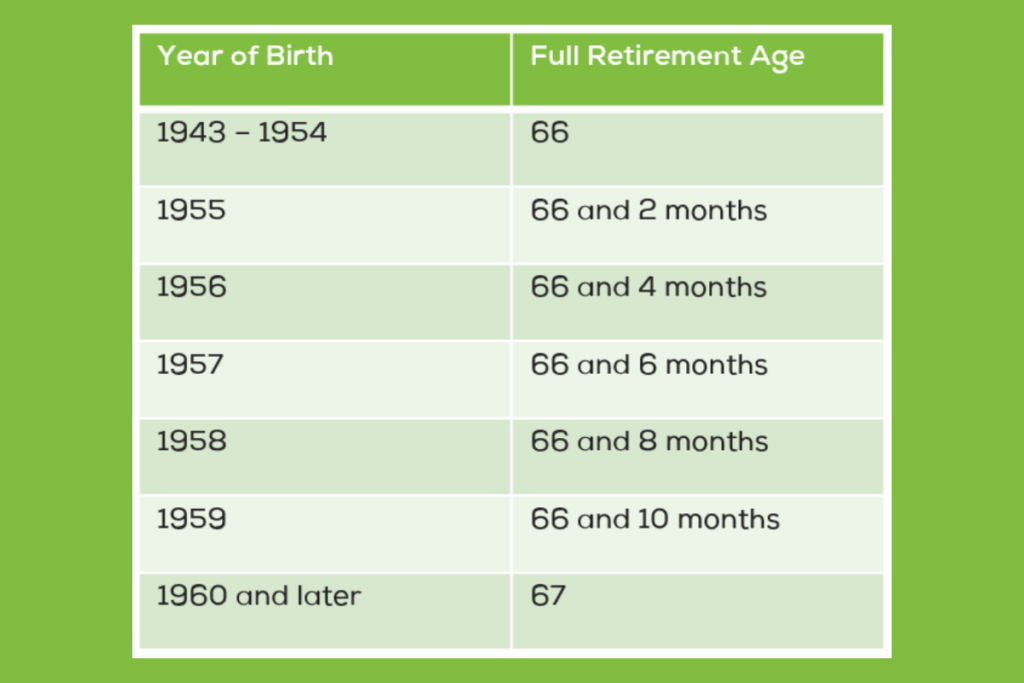8 Must-Know Retirement Deadlines
When can you access your savings without a penalty? When should you enroll in Medicare? At what age is it best to collect Social Security?
In the years leading up to retirement, there are a number of key milestones and deadlines to consider. Without careful attention, it’s easy to miss these checkpoints and the consequences can be severe. Let’s delve into eight crucial moments to help you stay on track.
Age 50: Time to Play Catch-Up
Once you turn 50, the IRS may permit you to make yearly “catch-up contributions.” These are additional amounts you can contribute to your 401(k)s and IRAs beyond the standard annual limits. This option is designed to help you save more for retirement. Unfortunately, not enough pre-retirees take advantage of this.
In 2023, you’re allowed to contribute $22,500 into a 401(k). With the catch-up option, you can add an additional $7,500 to the 401(k).
Age 55: Know the Rule of 55
Typically, making an early withdrawal from a workplace retirement plan can result in a penalty. But, there are exceptions to this rule, and the rule of 55 is one such example.
If you turn 55 during the calendar year you lose or leave your job, you may be eligible to begin taking distributions from your 401(k) without paying a penalty. However, you must still pay taxes on your withdrawals .
Age 59 ½: Say Goodbye to the Early Withdrawal Penalty
Remember when you used to celebrate your half birthday? While those days are likely behind you, turning 59½ might be a milestone worth acknowledging.
The reason? After turning 59½, you can generally take out money from employer-sponsored retirement plans and IRAs without the 10% early withdrawal penalty. However, regular income tax may still apply to these withdrawals. There are some exceptions to this rule, so make sure to discuss your situation with your financial professional.
Age 62: You’re Eligible to Start Claiming Social Security
At 62, you’re eligible to start receiving Social Security. But if you opt for benefits before reaching your full retirement age (the age where you can claim 100% of your benefits), your monthly amount can be permanently reduced. It’s advisable to consult with a financial professional to determine the best age for you to begin collecting Social Security benefits.
Age 65: It’s Time for Medicare Enrollment
At this age, the majority of Americans qualify for Medicare, which covers a significant portion of doctor visits, hospital care, and other medical services. Medicare is divided into various parts – A, B, C, and D. Navigating the enrollment and benefits for each part can be intricate, so consider seeking professional guidance.
Age 66-67: Full Retirement Age
You can start receiving your Social Security retirement benefits as early as age 62. However, full retirement age (FRA) is the date when you can receive the full standard benefit amount. This number depends on the year you were born.
If you were born between 1943 and 1954, your full retirement age is 66. If you were born between 1955 and 1959, your full retirement age is 66 plus two months for each year after 1954. Refer to the Full Retirement chart for a more detailed breakdown.

Age 70: Maximum Social Security Benefit Unlocked
By postponing the start of your Social Security benefits beyond your FRA and up to age 70, you accumulate delayed retirement credits. These credits boost your monthly benefit amount. So, if you hold off until age 70, you’ll obtain the highest possible monthly benefit. After age 70, there’s no financial advantage to delaying your claim any longer.
Age 73: Begin Required Minimum Distributions (RMDs)
One of the big reasons people contribute to 401(k)s during their working years is to lessen their tax burden. However, you’re not allowed to keep your savings growing tax free indefinitely. The government eventually wants to tax it. You need to start making taxable withdrawals from your account by April 1 of the year following the age set for required minimum distributions (RMDs). Failing to do so could result in a penalty of up to 25% on the amount you should have withdrawn.
Navigating the path to retirement isn’t just about marking off the years; it’s about recognizing and preparing for significant moments along the way. Watch our Retirement Readiness Webinar recording for an overview explaining some of these key dates for your retirement journey in video format.
If you know anyone between the ages of 50 and 73, consider sharing this information with them; it might be just the guidance they need. We are happy to have a conversation about your retirement journey to help you get to and through retirement enjoyably. Give us a call at 1-833-637-5360 or schedule a 15 minute phone call to get started.
Disclosure: This information is an overview and should not be considered as specific guidance or recommendations for any individual or business.
Sources
[1] “Retirement Topics – Catch-Up Contributions.” IRS, 29 Aug. 2023, www.irs.gov/retirement-plans/plan-participant-employee/retirement-topics-catch-up-contributions. Accessed 5 Sept. 2023.
[2] “Topic No. 558, Additional Tax on Early Distributions From Retirement Plans Other Than IRAs.” IRS, 6 Aug. 2023, www.irs.gov/taxtopics/tc558. Accessed 5 Sept. 2023.
[3] “Retirement Topics – Exceptions to Tax on Early Distributions.” IRS, 29 Aug. 2023, www.irs.gov/retirement-plans/plan-participant-employee/retirement-topics-tax-on-early-distributions. Accessed 5 Sept. 2023.
[4] “Starting Your Retirement Benefits Early.” Social Security Administration, 16 Jun. 2020, www.ssa.gov/benefits/retirement/planner/agereduction.html. Accessed 5 Sept. 2023.
[5] “Retirement Plan and IRA Required Minimum Distributions FAQs.” IRS, 14 Mar. 2023, irs.gov/retirement-plans/retirement-plan-and-ira-required-minimum-distributions-faqs. Accessed 5 Sept. 2023.

